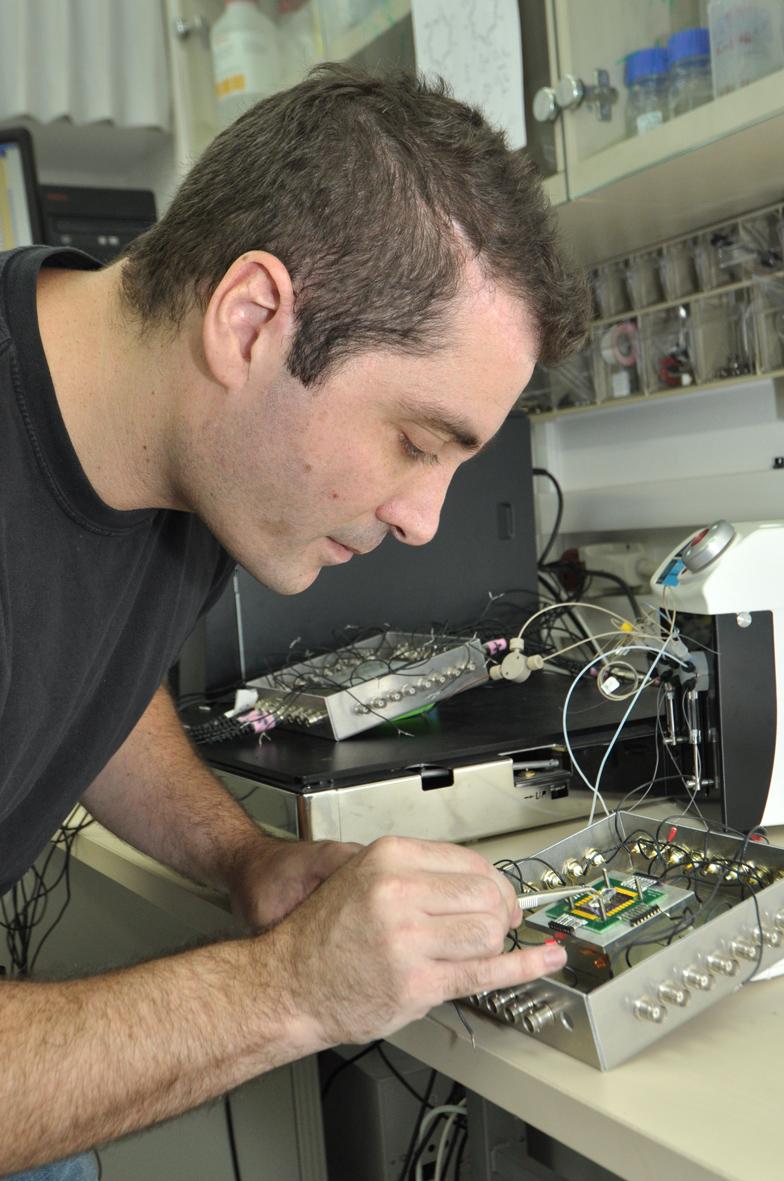The detector, based on nanotechnology, is fast, easy to move and has higher sensitivity and reliability for detecting explosives than those available in dogs. The discovery arouses great interest in the world among companies dealing with safety and security

Just this week we received confirmation of the fact that so many explosives were able to pass the security systems at many airports around the world, indicating that the terrorists are improving their ability to produce explosives so that they will not be detected by the systems designed for this, for this it is necessary to invent new systems.
A team of researchers, led by Prof. Fernando Petulsky from the Sackler School of Chemistry at Tel Aviv University, developed a powerful electric sensor to detect many types of explosives. The new detector is easy to move, and has a higher sensitivity and reliability for detecting explosives than those available in dogs. The discovery, recently published in the important scientific journal Angewandte Chemie, arouses great interest among scientists and among companies dealing with safety and security.
Prof. Petulsky explains that one of the main problems with devices for detecting explosives such as TNT is that they are very expensive, bulky, their decoding process takes a long time and an expert and laboratories are needed to decode their findings. "There is a need for a small and cheap device, which can be carried by hand, and which will enable fast, reliable and efficient detection of explosives", he says.
The detector developed by Prof. Petulsky consists of a chip on which nano-wires made of silicon are installed. The fibers form an electrical device (nano-transistor), which is very sensitive to the electrical environment around the fiber. The researchers coated the fibers with a binding layer of chemical receptors for explosives. In order to increase the sensitivity of the chip, it was equipped with 200 devices, or sensors, which enable the identification of many types of explosives with reliability, efficiency and speed that until now could not be achieved - not even with dogs.
A clear advantage of the new detector is that it is easy to move - it can be carried in the palm of your hand. In addition, it enables remote sensing. For example, it can be installed on a wall, and there is no need to bring it closer to the object being tested. Unlike other explosives detectors, it allows for certain identification of the explosives it encounters. He has no mistakes and no misses.
As mentioned, the new detector arouses a great deal of interest among those involved in safety and security. The company "Nanergy" (Nanergy) has developed a prototype based on the patent, and is already in talks with companies that develop detectors and sensors for detecting explosives.
The group of researchers led by Prof. Petulsky, who only returned four years ago from Harvard University, is considered one of the leading groups in the world in the field of developing nanometer detectors (sensors) for sensing chemical and biological molecules. These are not only sensors designed to detect explosives, but also sensors for biological toxins (such as anthrax, cholera or botulinum). The applications of these detectors are in the field of national security, but also in biology and medicine.

3 תגובות
Amazing, kudos to the developers and scientists who worked on the development.
Nanotechnology is the future of all of us.
Strong and courageous to the professor, this is a signal to our government to continue investing in the valuable human brain that we have
It's our minerals, it's the oil, etc
If the production will be done in collaboration with an Israeli company, and if these products will also be supplied to the soldiers guarding the transit terminals with the PA.
Do you think these products will be boycotted in the Scandinavian countries, or will they suffer from a forgetfulness problem for boycotting these companies?